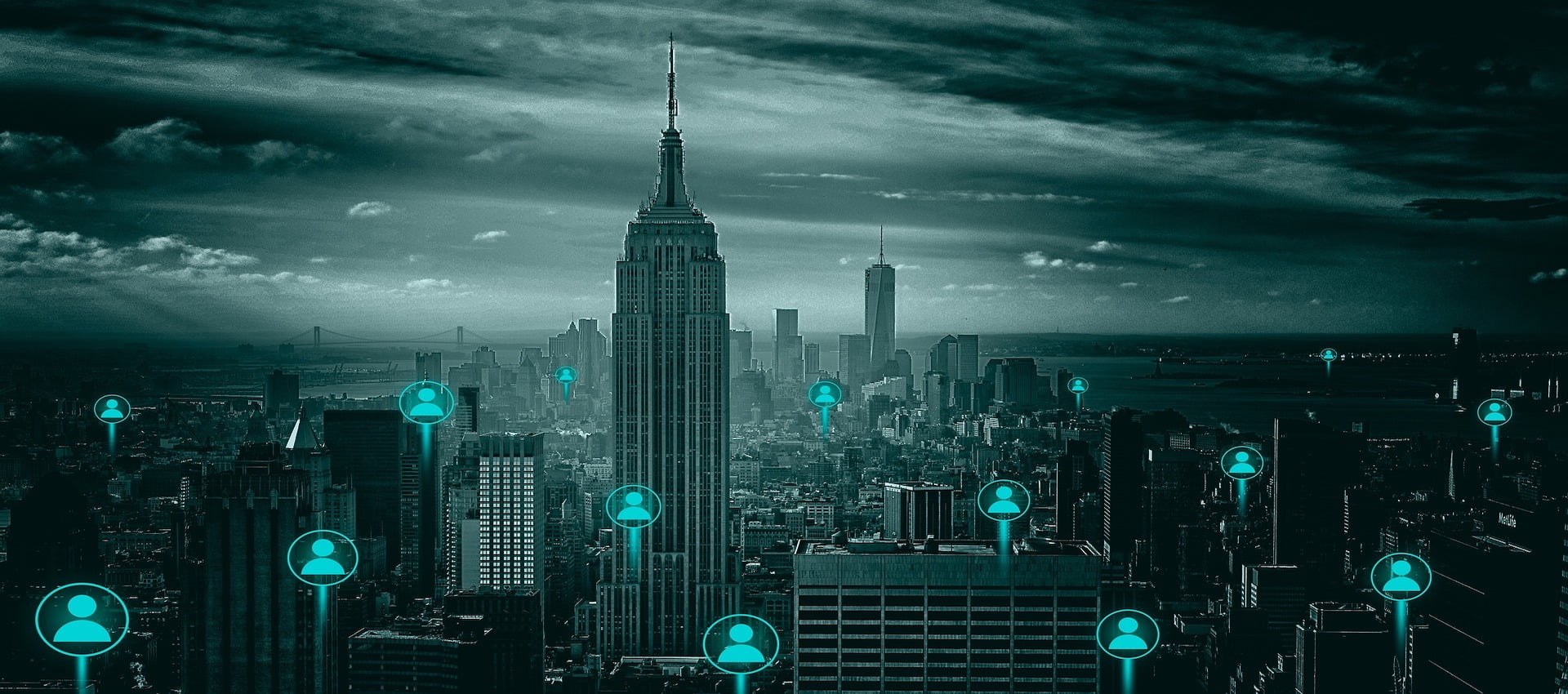Building AI agents involves creating models that perform tasks autonomously, make effective decisions, and learn from the environment. In this all-inclusive guide, we’ll discuss the important steps, techniques, and tools for developing and designing smart agents that can manage complex real-world challenges.
Table of Contents
Introduction to AI Agents and their types
AI agents are known as entities or systems that use AI (Artificial Intelligence) to comprehend their ambiance and take actions to achieve certain objectives. They are developed to autonomously communicate with their environment based on the information they gather and the algorithms that dictate their behavior.
Before building an AI agent, it’s important to know about its several categories which are based on their skill and complexity:
- Reactive Agents: These agents function via preset rules and responses to particular instances. They don’t store past interactions or learn from experiences and only act in real-time situations situation (Example: Basic Robots).
- Deliberative Agents: These AI agents reason and plan their actions before the final execution. They make use of the environment for simulating and predicting possible results, making decisions based on reasoning and logic. (Example: Autonomous Vehicles).
- Learning Agents: These agents enhance their performance with time by learning from experience. These generative AI agents can adapt to new data and toggle the outcomes according to feedback. (Example: Reinforcement Learning Models).
- Autonomous Agents: Highly autonomous AI agents that can work on complex tasks without any kind of human intervention. These models feature cutting-edge learning algorithms and can function in evolving environments (For example: Self-driving Cars).
These AI agents can be used for a variety of domains, including healthcare, robotics, finance, and customer service, to carry out tasks with minimum human intervention.
Benefits of Using AI Agents Across Industries
AI agents are constantly evolving businesses globally by automating tasks, enhancing decision-making, and boosting overall operational efficiency. AI agent development can help with the analysis of data, and autonomous interactions, offering businesses the capacity to experiment, grow, and stay competitive. Given below are some of the major benefits of leveraging AI across several industries.
Healthcare
AI agents in the healthcare industry enhance patient care through their assistance with diagnosis, treatment suggestions, and customized care plans. They minimize human error, enable faster responses, and optimize administrative tasks, leading to improved efficiency in clinics and hospitals.
Finance
In the financial world, AI agents analyze huge volumes of data to forecast market trends, detect fraud, and automate customer service. AI agents in the financial industry help minimize market risks, and provide personalized recommendations to clients, boosting overall financial management.
Retail
AI agents in retail can streamline inventory management, predict demand, and enhance customer experiences via customized product suggestions. They also optimize supply chain operations and boost sales through targeted marketing, leading to an increase in customer satisfaction and profitability.
Manufacturing
In the manufacturing domain, AI agents can automate monotonous tasks like assembly and quality control. They help with the monitoring of production processes in real-time, detect faults, and reinforce maintenance schedules, increasing productivity, minimizing downtime, and ensuring product consistency.
Customer Service
Agent development tools in AI such as virtual assistants and chatbots offer round-the-clock customer assistance, answer queries, and resolve issues rapidly. By managing monotonous tasks, they help free up human staff for more sophisticated inquiries, reducing operational costs and enhancing overall customer satisfaction.
Technologies Behind Developing AI Agents
The development of AI agents includes a variety of advanced technologies that help devices perform tasks autonomously, learn from information, and adopt dynamic environments. These technologies act as the foundation of AI agents and aid them in perceiving, reasoning, and acting effectively. Let’s dive into some of the essential technologies used for developing AI agents:
Machine Learning
Machine learning algorithms are one of the core technologies used for building AI Agents. They help AI agents pick insights from information and improve their performance with time. Learning techniques (supervised, unsupervised, and reinforcement) are leveraged to train AI agents, allowing them to forecast, figure out patterns, and streamline actions based on experience.
NLP (Natural Language Processing)
NLP allows AI agents to comprehend, translate, and produce human-like language. It’s particularly important for virtual assistants, chatbots, and any models that require communicating with users in a natural language, helping agents process text, respond to questions, and manage conversations efficiently.
Computer Vision
Computer vision is another crucial technology that helps in building an AI agent. Its function is to allow AI agents to gather and interpret videos and images. This technology is important for applications such as object detection, autonomous vehicles, and facial recognition, where AI agents need to understand the environment visually to make precise decisions.
Neural Networks
Neural networks, especially deep learning models, are leveraged to simulate decision-making processes that resemble the processes of a human brain. These networks empower AI agents to handle sophisticated tasks like speech processing, predictive analytics, and image recognition, by learning from an enormous information base.
Robotics
Robotics are also notably mentioned among the top agent development tools in AI. They integrate AI with physical devices, enabling agents to carry out real-world tasks. With the help of actuators, sensors, and AI-powered algorithms, robots can perform sophisticated tasks such as navigation, maintenance, and assembly autonomously, making them extremely useful for industries such as healthcare and manufacturing.
Reinforcement Learning
Reinforcement learning helps AI agents learn via real-time interactions with the environment. Through trial and error, agents optimize their actions to achieve specific goals, making this technology ideal for dynamic, decision-making applications like robotics and gaming.
Step-by-Step Guide to Making AI Agents
Understanding how to build AI agents is important for those who are looking to develop autonomous and intelligent models. From identifying the issue to deploying the solution – the development of AI agents involves a variety of steps.
These AI agents need to have several capabilities including a clear perception of their environment, decision-making skills, and autonomy to achieve particular objectives. Let’s dive into a step-by-step guide to developing an AI agent that covers all the core processes in design, development, and deployment:
Identify the Issue
Before building an AI agent, it’s critical to precisely define the problems that it’s meant to resolve. From automating customer support to optimizing logistics, the precise definition of the problem guides the agent’s design. So, the first step in how to build AI agents is specifying the environment, goals, and tasks that the AI agent needs to perform or achieve.
Actions Required:
- Select the tasks you want the agent to handle.
- Figure out the performance metrics and expected outcomes.
- Establish the limited and broad functionalities.
Pick an AI Methodology
Once the problem has been defined, an AI methodology needs to be picked, that best suits the task. Depending on the difficulty level of the task, an AI agent development company can choose from a wide range of techniques like reinforcement learning, machine learning, expert systems, or rule-based systems.
Actions Required:
- For tasks that demand pattern recognition, select deep learning or machine learning.
- If the task requires dynamic decision-making, choose reinforcement learning.
- For structured environments with defined rules, go for rule-based systems.
Data Gathering and Preparation
AI agents need information to learn patterns and carry out tasks effectively. The quantity and quality of data considerably impact the performance of AI agents. Relevant datasets need to be collected and prepared for training agents via normalizing, cleaning, and turning the information into a usable format for effective Generative AI development services.
Actions Required:
- Gather information from reliable and diverse sources.
- Clean the information to minimize noise, missing outliers, and values.
- Prepare the information base by scaling and normalizing it, if required.
Designing Agent Architecture
The architecture of an AI agent decides how it communicates with its environment. This may comprise its decision-making process, actuators, and sensors. A basic agent would only utilize ‘if-else’ statements, whereas complex agents usually leverage decision trees or neural networks for decision-making.
Actions Required:
- Design the interface of the AI age to receive input.
- Implement algorithms for decision-making processing and reasoning.
- Design the tasks the AI agent will perform based on the requirement.
Development and Training
The next step in building an AI agent is implementing the AI framework based on the selected methodology. This usually involves training ML (Machine Learning) models or fine-tuning reinforcement algorithms. It’s essential to make use of the prepared data sets to train the agent to ensure top-tier performance.
Actions Required:
- Choose an ideal algorithm (Decision trees, Neural networks, etc.)
- Train the AI model with the help of historical information or simulations.
- Analyze the model’s precision and toggle elements based on its performance.
Testing and Evaluation
Once the AI agent has been trained enough, it needs to pass through the testing phase to check its performance. Process the generative AI agents, their decision-making capabilities, communication, and actions in the said environment. Use testing scenarios that resemble real-world ambiance to check the effectiveness of the AI agent.
Actions Required:
- Run tests for the agent in a virtual environment to analyze its behavior.
- Check the agent’s performance using key metrics (Accuracy, Efficiency).
- Tweak the algorithms or model depending on the test results.
Deployment Phase
Once the testing and refining are done, the AI agent is all set for its deployment. The process of deployment involves the integration of generative AI agents into the desired environment or system where they’ll function. This could be an internal tool, a physical robot, or a website.
Actions Required:
- Check for the AI agent’s compatibility level with legacy frameworks.
- Integrate the AI agent into the environment of operation.
- Monitor its output in real time and gather feedback.
Monitoring and Improvement
After the deployment of the AI agent, constant monitoring is important to ensure its performance. Gather feedback from end users and make updates to improve its overall functionality. ML (Machine Learning) models, in particular, may leverage regular retraining during AI agent development for enhancing accuracy.
Actions Required:
- Track the AI agent’s communication and performance on a routine basis.
- Collect user feedback and tweak the AI agent’s behavior as required.
- Update the training dataset and AI model from time to time to maintain precision.
Real-Life Examples of Successful Development of AI Agents in Industries
AI agents are reshaping a wide range of industries on an international level. From optimizing medical diagnostics, personalizing retail experiences, and enabling autonomous vehicles, to automating legal processes – AI agents are enhancing, minimizing costs, and boosting decision-making.
To stay ahead of the competition in any industry, it’s important to learn how to build AI agents and leverage them for real-world applications. Here are some real-life examples of AI agents being used by different industries:
Duolingo’s AI-fueled Language Learning (Education)
Duolingo is a popular mobile app that uses AI agents to customize lessons for users. The app adapts to the user’s progress and provides customized challenges and exercises depending on individual strengths and weaknesses. Its AI system leverages ML (Machine Learning) to forecast the most efficient learning methods and tweaks its recommendations in real time to assist users in learning a new language.
Visa’s AI Fraud Detection (Finance)
Visa leverages AI agents to detect fraudulent transactions on a real-time basis. Their Generative AI development services keep surveillance over payment activities and gather data from transaction history to spot any suspicious behavior. With the help of ML (Machine Learning) algorithms, Visa’s AI agents can block potentially fraudulent financial activities and stop them before they happen.
Tesla’s Autopilot (Transportation)
Tesla’s Autopilot is another leading use case of AI agents in the transportation domain. Tesla vehicles are equipped with AI-fueled systems that support the functions of autonomous driving. This system makes use of cameras, sensors, and deep learning algorithms to navigate across roads, make driving decisions, and avoid obstacles in real-time.
Amazon’s Recommendation System (Retail)
Amazon’s AI-powered recommendation system can be considered among the top AI agent’s use cases. It makes use of ML (Machine Learning) to analyze the browsing histories and shopping behaviors of customers to recommend products customized to their needs and preferences. According to sources, this recommendation engine drives a huge portion of Amazon’s sales productivity.
Apple’s Siri (Customer Service)
Siri, which is Apple’s virtual assistant, is a popular AI agent known for handling performing tasks and customer inquiries via voice recognition. Siri can manage everything from setting reminders and sending messages to providing weather updates and answering general questions. It uses NLP (Natural Language Processing) to comprehend user commands.
Netflix’s Personalized Recommendations (Entertainment)
One of the most popular AI agent use cases in the entertainment domain is Netflix, which uses AI agents to suggest TV shows and movies according to user preferences. Their system analyzes ratings, viewing history, and genres to recommend content that is suitable to individual preferences and tastes. Netflix’s recommendation engine is among the key reasons for its success in keeping its users engaged.
Facebook’s Content Moderation (Social Media)
Facebook, the tech giant, uses AI agents to streamline content on its platform. Their system also removes harmful content such as explicit material, fake news, and hate speech. The AI agent also collaborates with human moderators to ensure a safe and secure online environment. It’s listed among the top AI agents’ use cases in the social media domain and is known for automatically detecting offensive language, videos, and images.
How A3Logics Can Help You Achieve Business Efficiency With AI Agent Development
A3Logics helps businesses achieve enhanced efficiency through AI agent development by creating custom AI solutions tailored to specific operational needs. By leveraging advanced AI technologies, our generative AI engineers build intelligent agents capable of automating routine tasks, analyzing data, and making informed decisions in real-time. This automation reduces human intervention, cutting down on operational costs and minimizing errors.
Additionally, A3Logics offers artificial intelligence solutions that learn and adapt over time, optimizing workflows and enhancing overall productivity. By integrating AI agents into your business, A3Logics ensures that you stay competitive, reduce inefficiencies, and unlock greater value from your data, leading to improved decision-making and faster growth.
Conclusion
Overall, AI agents are transforming industries by improving decision-making, customer experiences, and operational efficiency. From customizing learning patterns in education to streamlining supply chains in the retail domain – AI agents reduce human error, automate tasks, and allow for real-time decision-making. As AI technology evolves into its next phase, its applications are set to expand, reshaping businesses and industries. Building AI Agents can drastically boost productivity, innovation, and competitiveness, offering industries the chance to grow in a constantly evolving digital landscape.
FAQs
Will AI agents replace human agents?
No, AI agents are unlikely to be able to replace human agents. They can at max automate monotonous tasks and improve efficiency, whereas human agents bring emotional intelligence, complex problem-solving skills, and creativity that AI currently lacks. Generative AI development services are meant to complement human efforts by managing repetitive processes, allowing humans to focus on sophisticated objectives that require a nuanced understanding.
What is the Future of AI agent development?
The future of AI agent development looks bright and promising, with the evolution of ML (Machine Learning), NLP (Natural Language Processing), and deep learning. Every AI agent development company is pushing the boundaries of AI capabilities, as AI agents increasingly manage complex tasks on their own. This will lead to greater automation in the future, improved decision-making, and customized experiences across several industries.
What are the things to consider when looking for an AI agent developer?
- Experience & Expertise: Ensure the developer is an expert in AI, ML, and specific domain knowledge.
- Tech-Stack: Check if the expert holds knowledge of frameworks, programming languages, and tools required for the project.
- Personalization: Hire developers who can generate customized solutions instead of preset models.
- Growth: Ensure the AI holds the skills necessary to grow the model according to the business needs.
- Maintenance & Support: Ensure updates and ongoing support for improvements to the AI agent after deployment.
- Cost: Analyze the pricing and find a suitable segment that matches what it offers.
What are the challenges in developing AI agents?
There are several challenges that an AI agent development company faces during the developmental phase of AI models:
- Quality of Data: Incomplete or poor-quality data can restrict the ability of an AI agent to learn and perform efficiently.
- Level of Complexity: AI agents require refined and advanced algorithms to manage real-world scenarios.
- Ethical Problems: The operation of AI agents within ethical boundaries, without bias, remains a big challenge.
- Legacy-based Integration: Integration of AI agents with existing frameworks can be technically particularly challenging.
- Compliance & Regulation: Navigating regulatory and legal requirements for AI usage in sensitive industries, can be tricky.







